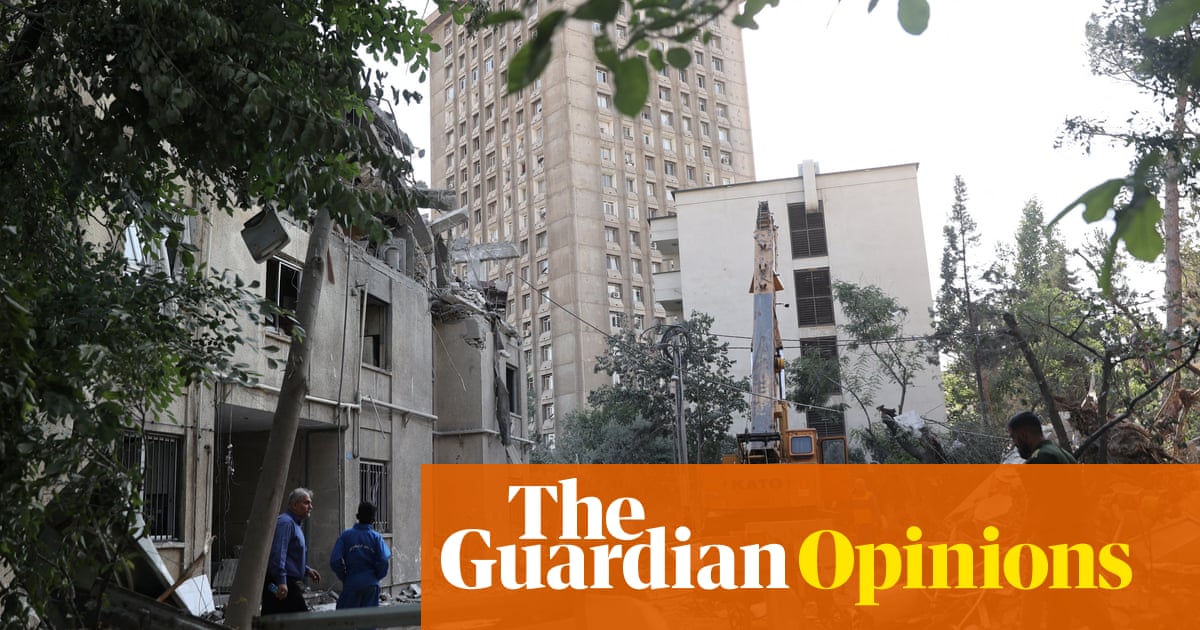US presidents who thought they could easily restrainBenjamin Netanyahuhave quickly learned their lesson. “Who’s the fucking superpower?” Bill Clintonreportedly explodedafter his first meeting with the Israeli prime minister.
Did Donald Trumpmake the same mistake? The state departmentquickly declaredthat thedevastating overnight Israeli attack on Iran– which killedkey military commanders and nuclear scientistsas well as striking its missile capacity and a nuclear enrichment site – was unilateral. Mr Trump had reportedly urged Mr Netanyahu to hold off in a call on Monday, pending US talks with Iran over its nuclear programmedue this weekend. The suspicion is that Israel feared that a deal might be reached and wanted to strike first. But Israeli officials havebriefedthat they had a secret green light from the US, with Mr Trump only claiming to oppose it.
Iran, reeling from the attack but afraid of looking too weak to retaliate, isunlikely to believethat the US did not acquiesce to the offensive, if unenthusiastically. It might suit it better to pretend otherwise – in the short term, it is not clear what ability it has to hit back at Israel, never mind taking on the US. But Mr Trump has made that hard bythreatening“even more brutal attacks” ahead, urging Iran to “make a deal, before there’s nothing left” and claiming that “we knew everything”. Whether Israel really convinced Mr Trump that this was the way to cut a deal, or he is offering a post-hoc justification after being outflanked by Mr Netanyahu, may no longer matter.
Israel has become increasingly and dangerously confident of its ability to reshape the Middle East without pushing it over the brink. It believes that its previous pummellings of Hamas, Hezbollah and Iran’s air defences have created a brief opportunity to destroy the existential threat posed by the Iranian nuclear programme before it is too late. Russia is not about to ride to Tehran’s rescue, and whileGulf states don’t want instability, they are not distraught to see an old rival weakened.
But not least in the reckoning is surely that Mr Netanyahu, who survives politically through military action, onlynarrowly survived a Knesset votethis week. The government also faces mounting international condemnation over its war crimes in Gaza – though the US and others allow those crimes to continue. It is destroying the nation’s international reputation, yet may bolster domestic support through this campaign.
The obvious question is the future of a key Iranian enrichment site deep underground at Fordo, which many believe Israel could not destroy without US “bunker busters”. If Israel believes that taking out personnel and some infrastructure is sufficient to preclude Iran’s nuclear threat, that is a huge and perilous gamble. This attack may well trigger a rush to full nuclear-armed status by Tehran – and ultimately others – and risks spurringmore desperate measuresin the meantime. Surely more likely is that Israel hopes to draw in Washington, by persuading it that Iran is a paper tiger or baiting Tehran into attacking US targets.
“My proudest legacy will be that of a peacemaker and unifier,” Mr Trump claimed in his inaugural speech. Yet on Friday he said was not concerned about a regional war breaking out due to Israel’s strikes. Few will feel so sanguine. The current incoherence and incomprehensibility ofUS foreign policyfuels instability and risks drawing adversaries towards fateful miscalculations.
